‘I’ve climbed Everest but I can’t get funding’: Samina Baig on conquering sexism at high altitudes
Every year, scores of mountaineers head to northern Pakistan to climb K2. But it’s not cheap, and sponsors are apprehensive about backing amateurs. So why can’t the first Pakistani female climber to summit the highest mountains on the seven continents – including Everest – get sponsored? Raza Hamdani investigates

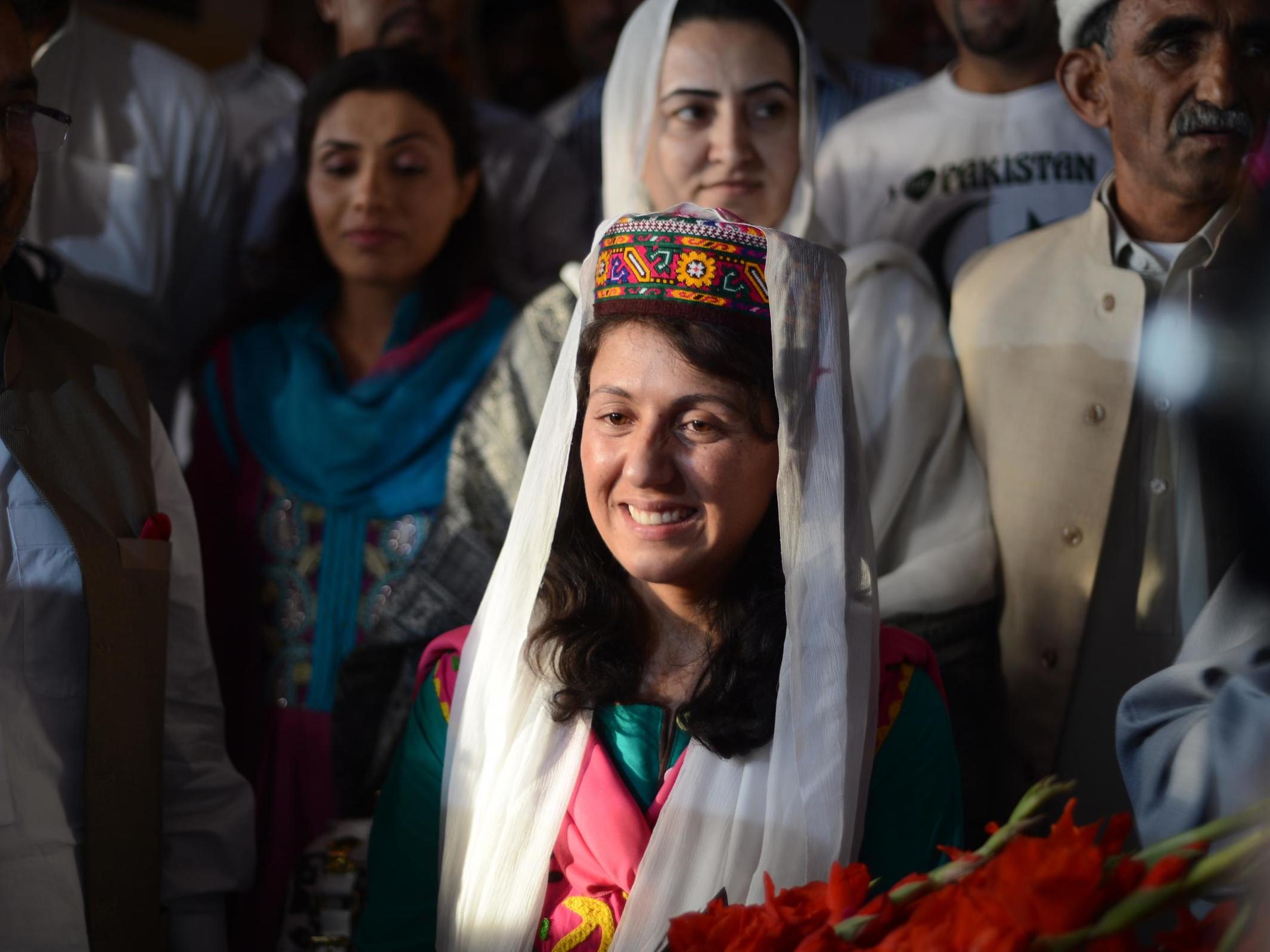
Whenever there is any news about Samina Baig, it’s always about her accomplishments in mountaineering, her appointment as national goodwill ambassador for the United Nations Development Council or being selected by the prime minister of Pakistan to join the National Youth Council. So when she announced on Twitter that she had failed to get sponsorship two years in a row to summit the second highest and most dangerous mountain in the world, K2, Pakistanis and the mountaineering community were shocked.
“I am not a beginner. I have summited Mount Everest,” Baig tells me, oozing the kind of confidence that can only be gained from the tops of mountains, “and the seven highest peaks on each of the seven continents (a feat she accomplished in just eight months and at 23 years of age) and many other peaks in Pakistan.”
This wasn’t the first time she had faced barriers to funding. Before climbing Everest, she approached many organisations for support, and was turned away. “But God helped me and a New Zealander came forward and supported me to raise the Pakistani flag on top of Everest,” she tells me.
Even when she was attempting the seven summit challenge, it was friends from New Zealand, America and Canada that funded her. She didn’t see a penny from anyone in Pakistan.
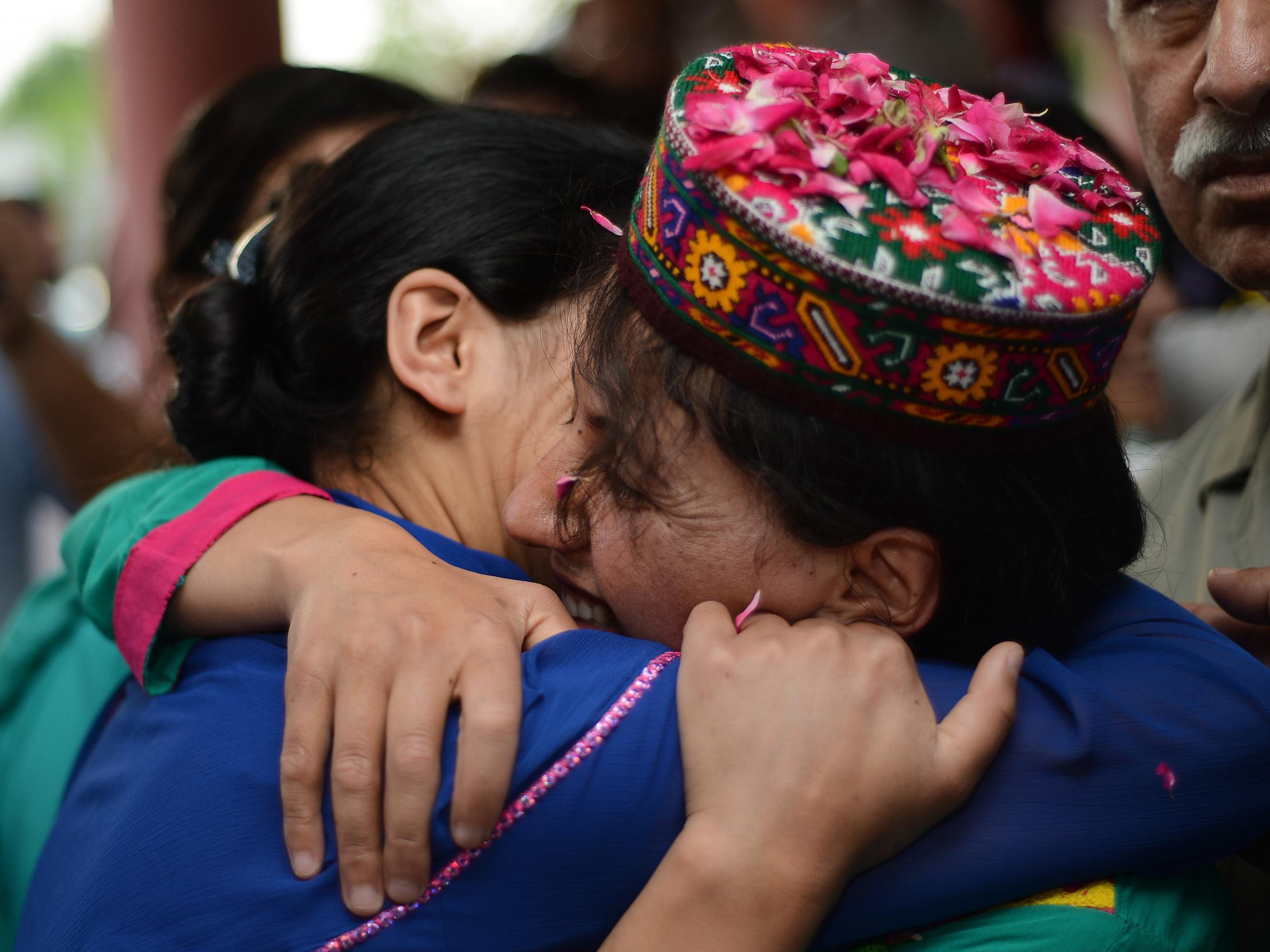
The trip was eventually sponsored by Serena Hotels under its Adventure Diplomacy initiative, which was set up to support Baig and her brother Mirza Ali on their mountaineering expeditions.
When she faced K2, Baig sought sponsorship from organisations within Pakistan. One organisation promised to support her 2018 K2 summit and the details were finalised when, Baig tells me, they pulled out at the last minute citing lack of funds.
“After failing to acquire funds for the 2018 summit, they promised me funds for a 2019 summit, but this year again I was told funds were not available.” After initially securing the funding, she trained for two years – time she now says has gone to waste. “The worst part is that they told me about the paucity of funds so late that I could not approach any other sponsor.”
Baig scaled the virgin peak Chashkin Sar in 2010, which was renamed Samina Peak after she climbed Mount Everest. The following year, she scaled another 6,000-metre virgin peak with a multinational group from Germany, Poland and Pakistan. After the summit, it was named Koh e Brobar, which means Mount Equality.
During her summits and expeditions, Baig has campaigned about gender equality and discrimination in mountaineering – but she has fallen victim to it herself?
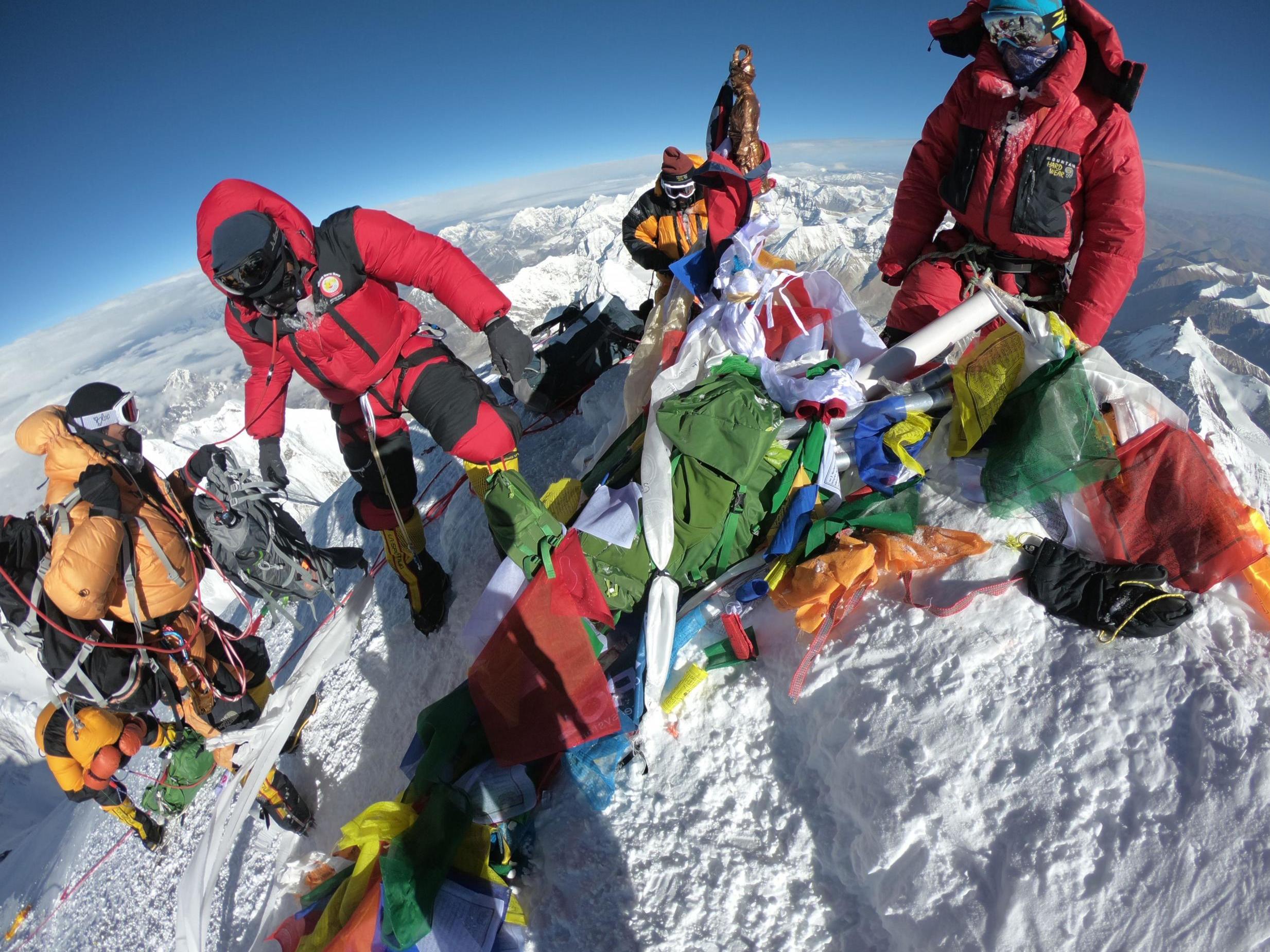
“I can come up with one conclusion and that is these organisations prefer male mountaineers over female. Some of the organisations I approached for sponsorship and have refused me are the same ones that have supported male mountaineers.”
After failing to get sponsorship two years in a row, Baig says that she has come to the conclusion that nothing is going to change for women in Pakistan. “A woman proves that she can accomplish feats but even then she is not being supported,” she says.
The cost of climbing K2
Permit: £5,700 per seven-man team
Gear: £5,000
Oxygen: £3,200
Food: £600
Transport: £2,000
Immunisations: £650
Grand total: Around £16,000 to do it as safely and comfortably as possible
Serena Hotels is one of the top sponsors of extreme sports in Pakistan. It recently sponsored the Tour de Khunjerab, one of the world’s highest altitude cycling competitions. Hussain Odhwani, senior manager of marketing and communications at Serena Hotels, says that all sponsorship proposals are scrutinised on merit and not on the basis of gender. “What we look for in a proposal is firstly the punch, second, past history of the applicant and third, his or her future plans.”
He says sponsoring varies from case to case and also depends on the programme’s budget. “It becomes very difficult to support something which is being done by many and that is why we look for that something extra or different.
“One example is Sarbaz Khan. We fully funded his Mount Lhotse summit because he was doing it without oxygen. But before approaching us for Lhotse, Sarbaz had summited Nanga Parbat and K2 on his own. You see many summit Lhotse but he came up with something different.”
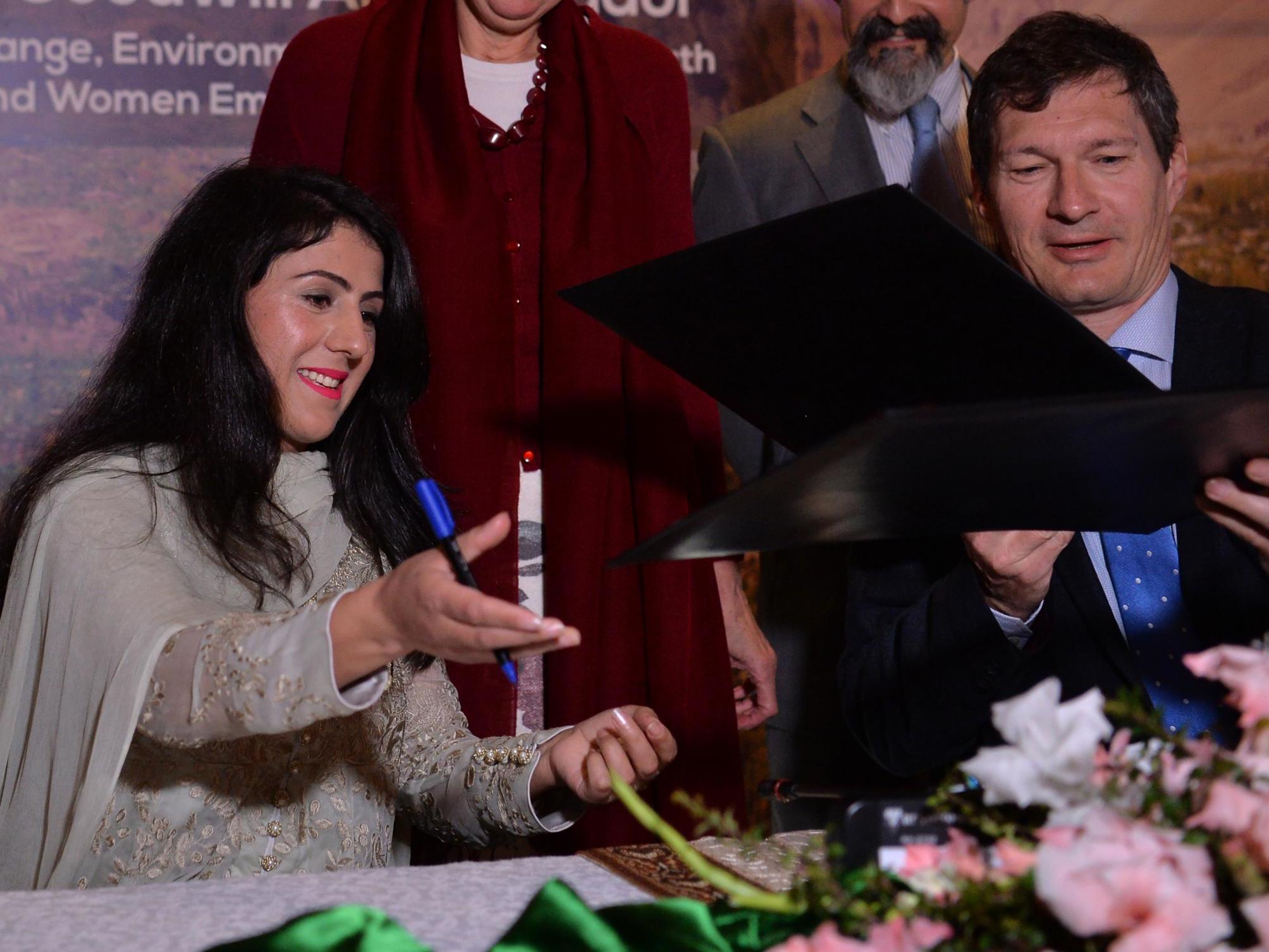
So does the first summit of K2, the second-highest mountain in the world, by a Pakistani woman quality for sponsorship? It has all the ingredients: beyond the firsts, Baig’s climbing record speaks for itself and in the future she plans to promote a “softer” image of Pakistan and women empowerment in the country.
“On Samina’s K2 expedition Serena will definitely support her depending on what kind of proposal she comes up with. We look for that punch which can make a positive impact on the image of Pakistan in the world.”
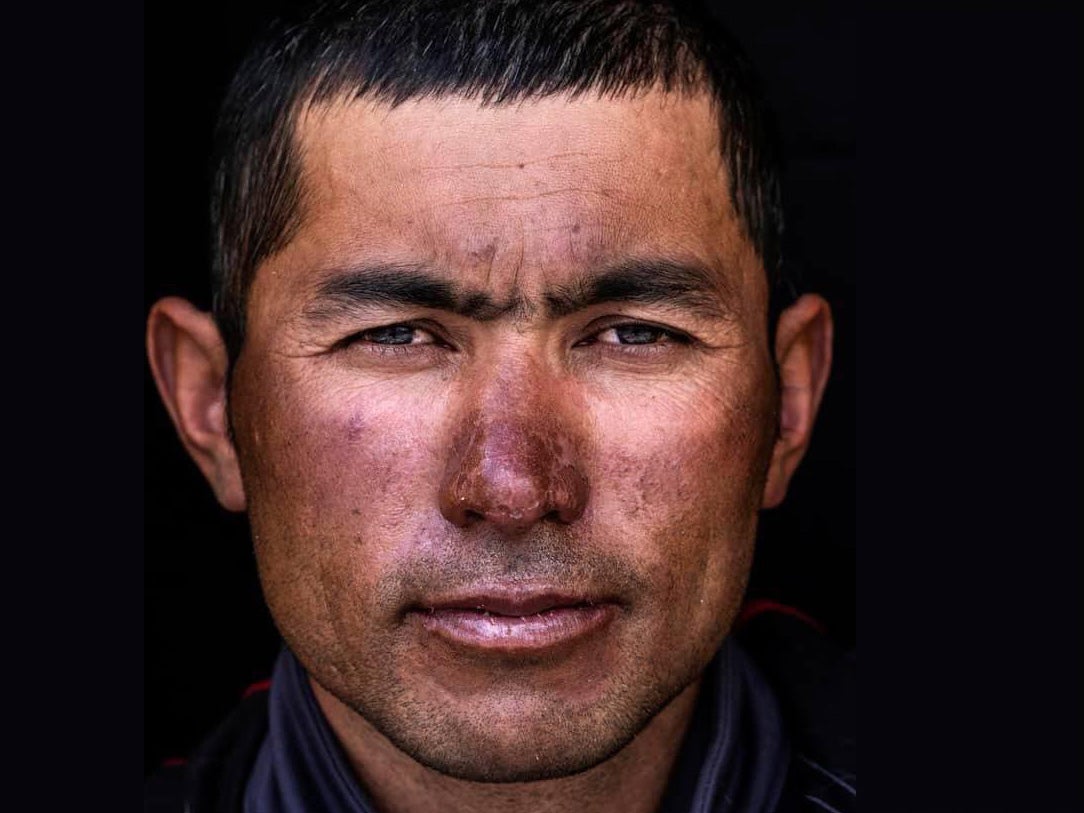
Komal Uzair is a young Pakistani climber living in Dubai. She is the second Pakistani woman to have climbed the 7,000m Spantik peak and was mentored by Baig and her brother on her first couple of climbs.
Like her previous summits, Spantik peak was self-financed. “I have a decent job in Dubai,” she says. “I save money and holidays all year to fund my expeditions but it’s only enough for smaller climbs. It’s not enough to sponsor an 8,000m peak or the famous seven summits or even more than one climb a year.
“I encourage other girls like me towards mountaineering, but money is always one of their main concerns.”
Uzair says that for her Spantik expedition she approached various brands and companies famous for sponsoring adventure sports. Only one replied but it also wanted some record or competition to sponsor.
“I told them that they cannot get two climbers to race to the top. The climbers work in tandem and support each other,” she says. “In mountaineering there is no competition between climbers but it’s a competition between climber and the mountain.”
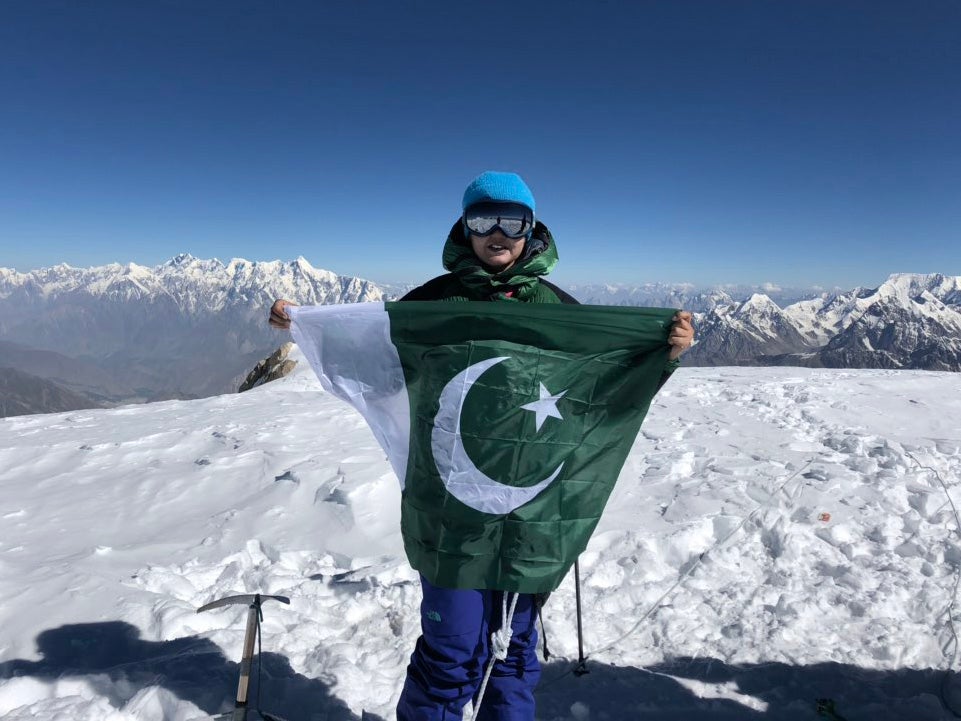
She says sponsors also fail to understand that a mountaineer may have to abandon the summit for various reasons. If the climber feels that their life and that of their team is in danger, the right decision is to abandon the summit and “live to do the summit another day but sponsors need results at any cost”.
Komal is disappointed that although Pakistan is home to some of the highest peaks in the world, mountaineering has not flourished or had the same exposure as it has in other countries. “There is a need to create awareness on a national level that mountaineering is not a hobby, it’s a serious sport which requires training of technical skills and infrastructure, so it should receive the same national support and should be institutionalised. Unless awareness is created the brands will continue to refuse to sponsor.
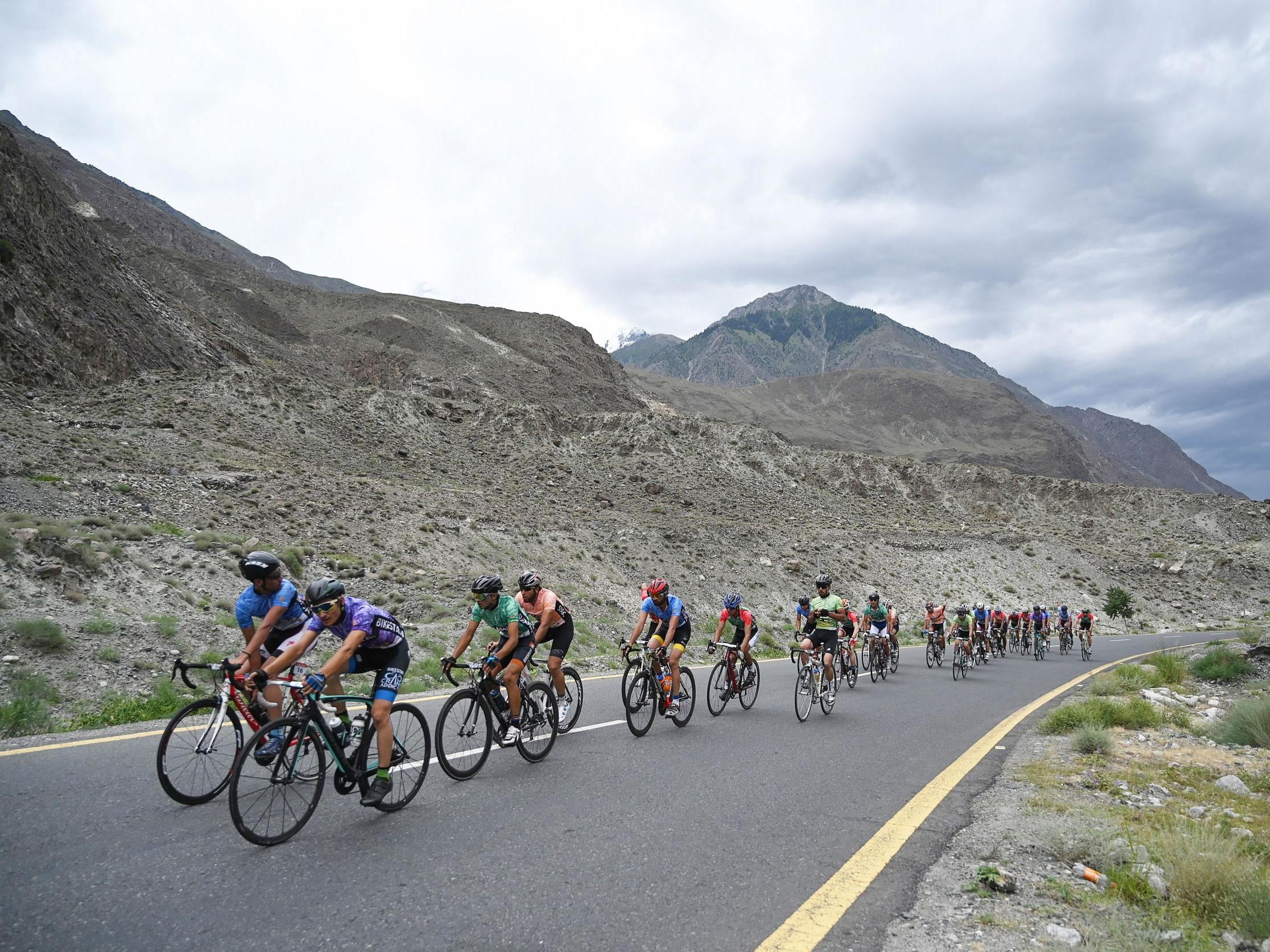
“I hope that prime minister Imran Khan, who himself is a sportsman, will back a plan to support sports other than cricket. Pakistan has come leaps and bounds in terms of measures taken on women empowerment and participation in sports and other unconventional careers, but there’s a lot more to be done.
“Nothing says how empowered our women are louder than when they are leading in an unconventional kind of sport like mountaineering.”
I can come up with one conclusion and that is these organisations prefer male mountaineers over female ... A woman proves that she can accomplish feats but even then she is not being supported
However, young climber Saad Mohammad disagrees that sponsorships are more difficult for women to get.
Mohammad, currently on the world’s 13th highest peak, Gasherbrum II (8,035m), says that even he is surprised to learn that Baig failed to get sponsorship for her K2 expedition.
“It is equally difficult for me to get sponsorship. Of course I cannot equate myself to Samina Baig but the point I am trying to make is that mountaineering sponsorships are difficult for both men and women.”
Mohammad says that he has been climbing since 2009 and has been running after companies to sponsor. “Whatever experience I have with seeking sponsors, I can say that they do not like to sponsor events which are stretched over many days,” he says. “They like short events. I also faced promises and refusals but instead of going with big brands I targeted small sponsors. Though it is difficult and time-consuming to forge alliances with many small sponsors, it’s doable.”
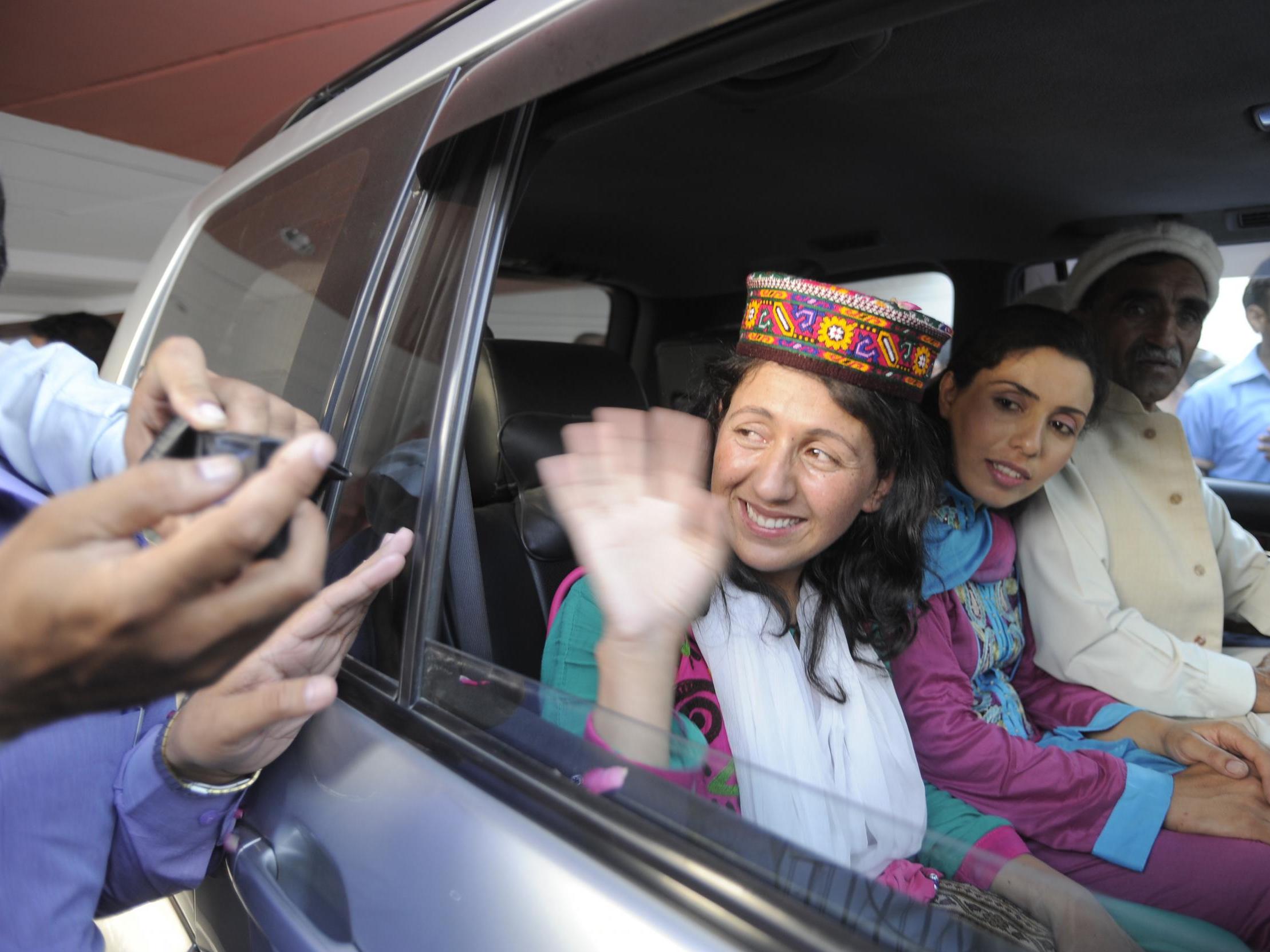
In the meantime, Baig says a “K2 summit is my dream and I am going to fulfill my dream”. She says she wants to promote a soft image of Pakistan and its female mountaineers through her expeditions. “But unfortunately the reality is that in our society women athletes, be it any sport, do not get the same support as male athletes,” she says.
While the government is focusing on boosting tourism – it has announced an e-visa policy and will open up state rest houses to tourists – women like Baig, Uzair and many others can certainly help in changing the image of Pakistan and Pakistani women in the world, and show there ain’t no mountain high enough for female climbers.
Join our commenting forum
Join thought-provoking conversations, follow other Independent readers and see their replies
Comments